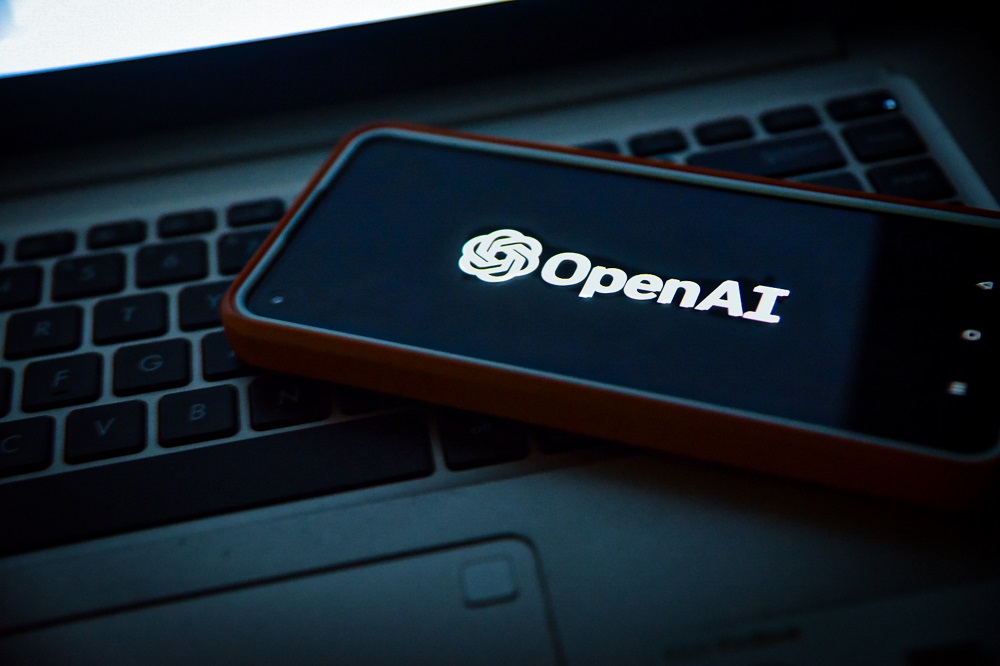ChatGPT is a language model designed to generate human-like responses to queries or statements. It is trained on a massive amount of data, making it capable of handling a wide range of tasks. Recently, ChatGPT for business has been increasingly adopted in the workplace for various applications.
ChatGPT is a powerful tool that can improve productivity, efficiency, and customer satisfaction in a wide range of work-related tasks. By leveraging its natural language processing capabilities, businesses can automate routine tasks, provide personalized support, and make data-driven decisions to improve their operations.
ChatGPT has undeniably taken the IT world by storm, and its popularity shows no signs of abating soon. The upcoming version of the model, ChatGPT-4, is said to introduce significant advancements in the efficacy and functionality of the original model.
However, the most significant change will be how ChatGPT is incorporated into other programs. As far as we know, Microsoft has put a tremendous amount of money into ChatGPT, and it is beginning to pay off. This first appearance of OpenAI functionality to automate chores and offer transcripts was in Teams Premium. OpenAI's ChatGPT is already integrated into Bing, and it will soon be soon that it and the rest of OpenAI's technologies are baked into familiar programs like PowerPoint and Word.
If you think artificial intelligence is significant now, wait until it is embedded in the most popular software in the workplace and education. It is uncertain how or when this will be implemented, but it will likely play a significant role in the development of ChatGPT in the long run.

Usage of ChatGPT for Business
Customer Service
ChatGPT in business can provide customer support through chatbots, virtual assistants, or other messaging platforms. By integrating ChatGPT with customer service channels, companies can provide real-time customer support without the need for human intervention. Chatbots can be programmed to handle routine queries and provide personalized responses to customers, freeing up customer support representatives to focus on more complex issues.
Content Creation
ChatGPT can generate content for websites, social media, blogs, and other marketing channels. With its ability to produce human-like text, ChatGPT can create high-quality content quickly, saving time and resources. This is particularly useful for businesses with a large volume of content, such as e-commerce sites or content marketing agencies.
Research and Analysis
ChatGPT can be used to conduct research and analyze data. By analyzing large volumes of data, ChatGPT can provide business insights and recommendations. For example, ChatGPT can analyze customer feedback and identify common themes and issues. This information can then improve products or services and enhance customer satisfaction.
Language Translation
ChatGPT can be used to translate text from one language to another. This can be useful for businesses operating in multiple countries and communicating with customers and employees who speak different languages. By integrating ChatGPT with messaging platforms or customer service channels, companies can support customers in their native language.

Training and Development
ChatGPT can be used to provide personalized training and development programs to employees. By analyzing employee performance and learning styles, ChatGPT can create customized training programs that meet the individual needs of each employee. For example, ChatGPT can be used to provide on-the-job training or to help employees develop specific skills.
Personal Assistant
ChatGPT can be a personal assistant to help with scheduling, reminders, and other administrative tasks. By integrating ChatGPT with communication channels such as email or messaging platforms, businesses can provide employees with personalized assistance to help them manage their workload.
Recruitment
ChatGPT can automate the recruitment process by screening resumes and conducting initial interviews. By analyzing resumes and candidate profiles, ChatGPT can identify candidates that meet specific criteria and conduct initial interviews. This can save time and resources for businesses that receive many job applications.
Benefits of ChatGPT as whole
One significant benefit of ChatGPT is its ability to automate repetitive and routine tasks. For example, customer service representatives spend substantial time answering frequently asked questions, which ChatGPT-powered chatbots can easily handle. This not only saves time but also improves the quality of customer service by providing quick and accurate responses.
Moreover, ChatGPT can be used to analyze large volumes of data and generate reports, making it a valuable tool for businesses looking to gain insights into their operations. It can also predict future trends, allowing companies to make more informed decisions.

Another trend in the use of ChatGPT in the workplace is the creation of virtual personal assistants. These assistants can help employees manage their schedules, emails, and other routine tasks, improving productivity. This can be particularly helpful for busy executives who have a lot on their plate and need to prioritize their tasks.
Additionally, ChatGPT can create content automatically, reducing the workload on content creators. For example, The Washington Post uses ChatGPT to generate articles on weather and sports. This allows their journalists to focus on more in-depth reporting and analysis.
However, it is essential to note that ChatGPT is imperfect and has limitations. While it can generate human-like responses, it may not always be able to understand the nuances of language or provide the same level of emotional intelligence as a human. Moreover, there are concerns about the potential for bias in its responses, as it learns from the data it is trained on, which may contain biases.
Benefits of ChatGPT in Business
ChatGPT is one of the latest chatbots available and the most trending one. Here are some of the benefits that ChatGPT possesses:
Increased productivity
ChatGPT can automate repetitive tasks, such as data entry or customer service inquiries, allowing employees to focus on more complex and high-value work. This can improve productivity and help businesses make the most of their employees' time and expertise. ChatGPT can automate a range of tasks, such as data entry, scheduling, and email responses. For example, a virtual personal assistant powered by ChatGPT could help employees manage their calendars, schedule meetings, and send email reminders, allowing them to focus on more complex and high-value work. Another example is using ChatGPT to automate routine customer inquiries, such as checking the status of an order or providing shipping information. This can free up customer service representatives to handle more complex questions, improving productivity.

Improved customer service
ChatGPT-powered chatbots can provide quick and accurate responses to customer inquiries, improving the quality of customer service. They can also help businesses handle large volumes of questions without additional staff. This can lead to increased customer satisfaction and loyalty. Chatbots powered by ChatGPT can provide quick and accurate responses to customer inquiries, improving the quality of customer service. For example, a chatbot could provide customers with product recommendations based on their preferences or answer frequently asked questions. Another example is using ChatGPT to handle customer complaints and feedback. This can help businesses respond to customer needs in real-time and improve customer satisfaction.
Enhanced data analysis
ChatGPT can analyze large volumes of data, generating insights and identifying patterns that may not be immediately apparent to humans. This can help businesses make more informed decisions and improve their operations. ChatGPT can analyze large volumes of data, generating insights and identifying patterns that may not be immediately apparent to humans. For example, a business could use ChatGPT to analyze customer feedback and identify common themes or areas for improvement. Another example is using ChatGPT to analyze sales data and make predictions about future trends. This can help businesses make more informed decisions and improve their operations.
Personalized experiences
ChatGPT in business can create personalized experiences for customers and employees. For example, virtual personal assistants powered by ChatGPT can help employees manage their schedules and tasks, while chatbots can provide tailored customer recommendations based on their preferences. This can help businesses build stronger relationships with their customers and employees. Another example is using ChatGPT to personalize marketing communications. For example, a company could use ChatGPT to create targeted email campaigns that consider customer interests and purchase history.
Cost savings
By automating tasks that would otherwise require human labor, ChatGPT can help businesses save on labor costs. This can be particularly beneficial for small businesses with limited resources. In addition, ChatGPT can help businesses avoid the costs associated with hiring additional staff to handle customer inquiries or data analysis. For example, a company could use ChatGPT to automate routine customer inquiries, reducing the need for customer service representatives. Another example is using ChatGPT to analyze data, reducing the need for data analysts or other specialized staff. This can be particularly beneficial for small businesses with limited resources.
24/7 availability
Chatbots powered by ChatGPT can be available 24/7, providing customers with support and assistance outside regular business hours. This can improve the overall customer experience and increase customer satisfaction. For example, a business could use a chatbot to handle customer inquiries or complaints after hours, improving the overall customer experience and increasing customer satisfaction.

Scalability
ChatGPT can be easily scaled to meet the needs of businesses of all sizes, from small startups to large enterprises. This means that companies can start small and gradually expand their use of the technology as needed without incurring high costs or disruptions to their operations. For example, a small business could start by using ChatGPT to automate routine tasks, such as data entry or customer inquiries, and gradually expand its use of technology as the business grows. A large enterprise could use ChatGPT to analyze large volumes of data or provide personalized customer recommendations at scale.
The benefits of using ChatGPT for business include increased productivity, improved customer service, enhanced data analysis, personalized experiences, cost savings, 24/7 availability, and scalability. By leveraging the power of ChatGPT, businesses can streamline their operations, improve their customer experience, and gain valuable insights into their processes, among other benefits.
Pros and Cons of ChatGPT in business
ChatGPT is a powerful tool that offers many benefits to businesses and individuals. However, like any technology, it also has its pros and cons. Here are some of the main pros and cons of using ChatGPT:
Pros:
- Versatility: ChatGPT can be used in many applications, from customer service to content creation and data analysis. This versatility makes it a valuable tool for businesses of all sizes and industries.
- Accuracy: ChatGPT has been trained on vast amounts of data, which makes it highly accurate in generating human-like responses. This can improve the quality of customer service and provide more accurate data analysis.
- Speed: ChatGPT can generate responses and perform tasks much faster than a human can, improving productivity and efficiency.
- Cost savings: By automating routine tasks, ChatGPT can help businesses save on labor costs and increase operational efficiency.
- Scalability: ChatGPT can be scaled to meet the needs of businesses of all sizes, making it a flexible tool that can grow with a company.
Cons:
- Limitations: While ChatGPT is highly accurate and versatile, it has restrictions regarding its ability to understand complex or nuanced information. It may need help to generate responses to highly specific or technical questions.
- Bias: ChatGPT is only as objective as the data it has been trained on. If the data is biased, this bias may be reflected in the responses generated by ChatGPT.
- Lack of empathy: ChatGPT may need help understanding the emotional context of a situation or providing compassion in customer service interactions.
- Maintenance: ChatGPT requires ongoing maintenance and updates to ensure accuracy and performance. This can require additional time and resources.
- Dependence: Businesses that rely heavily on ChatGPT may become overly dependent on the technology, which can pose a risk if the technology experiences downtime or malfunctions.

Trends in ChatGPT for business
- Chatbots: Many companies are integrating ChatGPT-powered chatbots into their websites and messaging platforms to handle customer inquiries and support.
- Data analysis: ChatGPT can be used to generate reports, analyze data, and make predictions, making it a valuable tool for businesses to gain insights into their operations.
- Personal assistants: ChatGPT-powered virtual assistants can help employees manage their schedules, emails, and other routine tasks, improving productivity.
- Automated content creation: ChatGPT can generate articles, social media posts, and other forms of content, reducing the workload on content creators.
Conclusion
ChatGPT offers many benefits regarding accuracy, speed, and cost savings. However, it also has limitations and potential downsides that businesses should be aware of before implementing the technology. By weighing the pros and cons, companies can make an informed decision about whether ChatGPT is the right tool for their operations.
ChatGPT has proven to be a versatile tool that can be used in various ways in the workplace, from customer service to data analysis and content creation. Its ability to automate routine tasks and provide accurate and quick responses makes it an attractive option for businesses looking to improve efficiency and reduce costs. As the technology behind ChatGPT continues to evolve, its potential applications in the workplace are expected to expand even further.
Our in-depth knowledge of industries including Media & Entertainment, Financial Services, and Technology allows us to provide invaluable insights to our clients. Many Fortune 500 companies have taken advantage of our contextual intelligence services, where our analysts and subject matter experts have aided in data-driven decision-making.
Traditional intelligent systems focus on statistical and rule-based ways to learn from data. Still, consumer sentiment analysis and large-scale neural network-based deep learning techniques quickly become the norm for creating intelligent systems.
FAQ
Is ChatGPT Free To Use?
Yes, ChatGPT is free for everyone to use.

How Can ChatGPT Be Used?
ChatGPT is a chatbot driven by artificial intelligence that may be used for various functions, including answering inquiries, providing customer assistance, generating the content, and more. Users can communicate with ChatGPT via text-based chat platforms or voice assistants, making it a flexible tool applicable in various situations.
ChatGPT: Pros and Cons
ChatGPT's pros include its speed in responding to user inquiries, availability around-the-clock, and capacity to handle a high volume of requests concurrently. Occasional mistakes or misconceptions in its responses and limitations in its power to comprehend sophisticated or nuanced language may be considered disadvantages.
What are the benefits of ChatGPT?
The benefits of ChatGPT include its ability to increase efficiency by automating customer support and other repetitive tasks, increase user engagement by providing prompt and helpful responses, and reduce costs by removing the need for human operators in certain situations.
Why should you use ChatGPT in your business?
Businesses may use ChatGPT to give customer service, develop content, and conduct market research, among other tasks. By utilizing AI solutions such as ChatGPT, companies can save time and money, boost customer satisfaction, and gain insight into user behavior.
How to Use AI Tools Like ChatGPT in Your Business?
You must integrate the tool with your current systems and platforms to employ AI technologies in your organization, such as ChatGPT. This may need collaborating with a developer or utilizing pre-built integrations. In addition, you will need to train the AI model to comprehend your specific use case and monitor and tweak its performance regularly to guarantee it provides correct and helpful responses.









